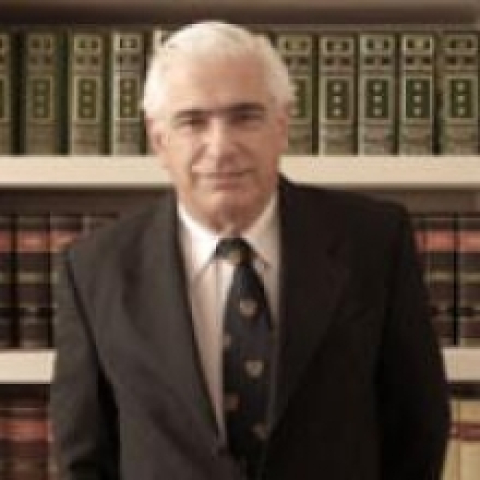Covid-19 In Location Contracts Of Office Properties Or Premises: Fortuitous Case Or Imprevision?
The basic fact of the application of both regimes.
The pandemic leads us to a situation typical of science fiction literature1. No one had foreseen that this year we would find ourselves in a panorama of restricted freedoms and alteration of our family and economic relationships such as that imposed by this scourge. Obviously, the pandemic and the State's policies to combat it have a direct impact on the Law, especially on the treatment that is opened against previously concluded contracts2.
Faced with the natural phenomenon that harasses us, the professionals of the Law (Jurists, Judges, lawyers), we immediately tend to frame the situation within the institute of Act of God3.
Now, in classical Roman law, it was considered that the unpredictable or inevitable fact to exempt the debtor from his responsibility should cause the absolute impossibility of compliance.
It happens that there are assumptions where the unpredictable or inevitable fact does not prevent compliance, but rather makes it excessively onerous. This concept implies an imbalance in the benefits of the parties because, in bilateral contracts, they have given their consent contemplating the balance of value (which is a subjective concept of each) between what they give and what they receive.
For these assumptions, the medieval Canon Law (many of whose institutions were incorporated into Civil Law) elaborated the so-called "Theory of Unpredictability" whose basis is to interpret the will of the parties. It was said that although contracts are concluded to fulfill them ("pacta sum servanda" principle), this is so as long as the conditions in which the contract was concluded do not vary in such a magnitude that it could not have been foreseen ("rebus sic principle"). standibus ”)4. If this occurs the affected party who can comply, but doing so involves an extraordinary loss that could not be foreseen, you can request the termination of the contract. This theory was applied by European jurisprudence and then elaborated by German doctrine giving rise to what was called the "presupposition or basis of the legal business". It affirms that those who conclude a contract think and act based on a given situation, which is why, if during the life of the contract there is an alteration of the facts outside the parties and that they could not foresee, it could happen that the contract, to be executed in the same conditions, completely lose its original meaning and have totally different consequences from those that the parties had planned or should reasonably have planned5.
In summary, if an unforeseeable or unavoidable event occurs, it must be analyzed, in each case, which of the two institutes commented affect the life of the contract: a) if the unforeseeable event absolutely prevents the fulfillment of the obligation, we will be before a Case Fortuitous as an exemption from the debtor's imputability and the debtor can be released requesting the termination of the contract; b) if it does not prevent compliance with the obligation but makes it excessively onerous, the Theory of Unpredictability is applied and the debtor can request the resolution but opens the possibility of readjusting the benefits. It should be borne in mind that this last possibility has been regulated in various ways in the previous Civil Code and in the Civil and Commercial Code that now governs us.
During the validity of the Civil Code, Velez had not foreseen the Theory of Imprevision, but the jurisprudence applied it. In the 1968 reform, it was introduced in article 1198, allowing the affected debtor to invoke it to resolve the contract, and the other party could offer the readjustment6.
CCC establishes the option of the injured debtor between terminating the contract or requesting the readjustment, not to mention the possibility of the defendant to offer the readjustment before a request for resolution (art. 1091 CCC)
Covid-19
There is no doubt that the pandemic caused by the Covid19 virus has the characteristics of an unpredictable and inevitable event, but this in itself does not imply that all the obligations contracted prior to its appearance are affected in the same way.
The fact of the pandemic, which endangers the lives of many through the ease of its contagion, can undoubtedly be a reason to abstain from carrying out certain activities and, from this aspect, whoever committed to carrying out an activity that seriously compromises your health may invoke it to release or suspend compliance. To this is added the "fact of the prince" consisting of government measures that prohibit displacement and order the so-called "social, preventive and compulsory isolation" (decree 297/2020, art. 2, hereinafter ASPO) that restricted the possibility of moving and imposed on all the inhabitants of the Nation the obligation to remain isolated in their places of residence or where they were when the measure was decreed. This provision implies adding the legal prohibition to the pandemic as a triggering event for the fortuitous event7.
But, I insist, it must be analyzed on a case-by-case basis, since in many cases the service can be fulfilled by electronic means or by resorting to legal exceptions, which indicates that this unfortunate fact does not necessarily produce the release itself, although I advance my opinion that in most In all cases, it would authorize the temporary readjustment of benefits8.
The tenant's obligation in rental contracts for offices or commercial premises. Application of the Theory of Unpredictability.
Against the ASPO decreed by the State, the problem of those tenants with current lease contracts that are prevented from developing their activity in the rented property, can they invoke COVID 19 to free themselves from the obligation to pay the rent, alleging the Fortuitous Case?
The Fortuitous Case has a special regulation in the lease contract in art, 1203 of the CCC. In my opinion, the last paragraph of the rule is clear in the sense that the fortuitous case must "affect the thing itself". So it must be an unpredictable or inevitable event that falls directly on the thing. For example, if an earthquake or a fact of nature directly prevents access to the thing, or if a measure of authority specifically prohibits its use absolutely.
For this reason, I consider that the invocation of the Fortuitous Case by the tenant today is viable only in those activities that are absolutely prohibited, such as public shows, restaurants or beverage offices, provided that the measures decreed by the government absolutely prevent the use of the good object of the contract.
In the event that the tenant can carry out some permitted activity, I consider that the fortuitous event cannot be invoked and that the most appropriate figure is the Theory of Unpredictability whenever the circumstances of excessive onerousness occur.
For example, if a place destined for a restaurant or fast food office is included in the prohibition of receiving customers, but can continue its activity through the so-called "delivery", we will be in the presence of an assumption of excessive onerousness arising from the provision in charge of the tenant because it is evident that he will have a significant decrease in his income caused by the legal prohibition, but he will be able to continue his activity. The fairest solution in this case is the readjustment of the rent while the pandemic lasts.
In the same way, in the case of rentals for professional and commercial purposes, the DNU have not prohibited the use of offices, but are restricted by the prohibition of attending workplaces (art. 1 DNU 297 / 2020). But in the majority of cases there are teams that stay active, inside the offices and allow the use of remote connection systems to continue carrying out tasks. The files are also preserved and there may be people authorized to access within the exceptions of the same decree or those that were later included or will be included. In turn, the security staff and the reception of correspondence remain.
In these circumstances, the unpredictable fact of the pandemic imposes restrictions that can make the provision excessively onerous, which also depends on the value of the location and the destination that the tenant gives it. A deposit is not the same as an office or a premises.
In these last two assumptions it will depend on the particularities of each case since in the current circumstances they could cause an underuse of the spaces, which It implies paying a higher price than originally agreed, since less surface is used than the original.
The theory of shared effort.
The problem is that both in the fortuitous case and in the unforeseen, the CCC authorizes to request the rescission and in the unforeseen it seems to me that the legal solution is deficient because it says nothing about the power of the defendant to agree to the adjustment of benefits that, in the case of a pandemic, it would be the fairest solution.
It is a delicate issue because the pandemic hits tenants and landlords in the same way. Consider the situation of people whose source of income to live on is the property income they have acquired with their savings to ensure an income that may be the only one.
Facing the pandemic, equitable solutions must be implemented that take into account the rights, interests and expectations of all parties to the contract. In this sense, during the 2001 crisis, regulations were issued for the emergency caused by the devaluation that directly impacted on contracts previously entered into. In them, the so-called shared effort theory9 was adopted, the basis of which, perfectly applicable to today's emergency, is that the parties to a bilateral contract, applying the principle of good faith10, must find a solution that makes the effort fall proportionally in both11. The plain and simple invocation of the fortuitous event by the tenant does not respond to this principle because the owner's income is also reached by the pandemic. The application of the theory of unpredictability I consider to be more convenient because it allows the adaptation of the benefits to the transitory reality that we are experiencing.
--------------------------------------
1 Although it may increase fear, I recommend reading the novel "The Day of the Triffids" by John Windham.
2 See: “COVID 19 and its effect on some contracts” by Diana C. Sevitz and Guillermo C. Brude, ElDial DC2A36 04/17/2020;
3 ARTICLE 1730.- Act of God. Force Majeure. It is considered a fortuitous event or force majeure to the fact that it could not have been foreseen or that, having been foreseen, it could not have been avoided. The fortuitous event or force majeure exempts from liability, unless otherwise provided 4 "Successive tract contracts implicitly include the clause that compliance is only enforceable when things remain in the same state as they were at the time of its conclusion" (Fornieles Salvador "Questions of Civil Law", Volume I, page 24 , "The 'Rebus sic Stantibus' clause"
5 (Conf. Karl Larenz "Basis of Legal Business and Contract Compliance. Ed. Magazine of Private Law, Madrid, page 98.
6 In any case, the jurisprudence had mostly accepted the possibility that the debtor could request the adjustment of benefits.
7 See the interesting analysis “Commercial location contract and obligatory social isolation” by José Octavio Clariá, April 22, 2020 on the website clariatevisan.com.ar.
8 See: “COVID-19 in long-term service contracts. Force majeure or theory of unpredictability? ” By ALEJANDRO P. GUARDONE, at Abogados.Com Thursday, April 30, 2020
9 Art. 11 of law 25,561 and art 8 decree 214/2012.
10 The “good faith” standard is explicitly regulated in several articles of the CCC, especially mentioning art. 10 referring to the exercise of rights and 961 referring to the interpretation of contracts.
11 See "The exercise of shared effort as a contractual good faith duty in the time of Covid-19" By Adrián Furman and Francisco Zappa, in ABOGADS.COM Wednesday April 29, 2020
Do you want more information?
 Enrique del Carril
Enrique del CarrilBorn in Buenos Aires City, on April 19, 1947. He graduated in law at Universidad Católica Argentina (School of Law and Political Sciences), Buenos Aires, 1970.

